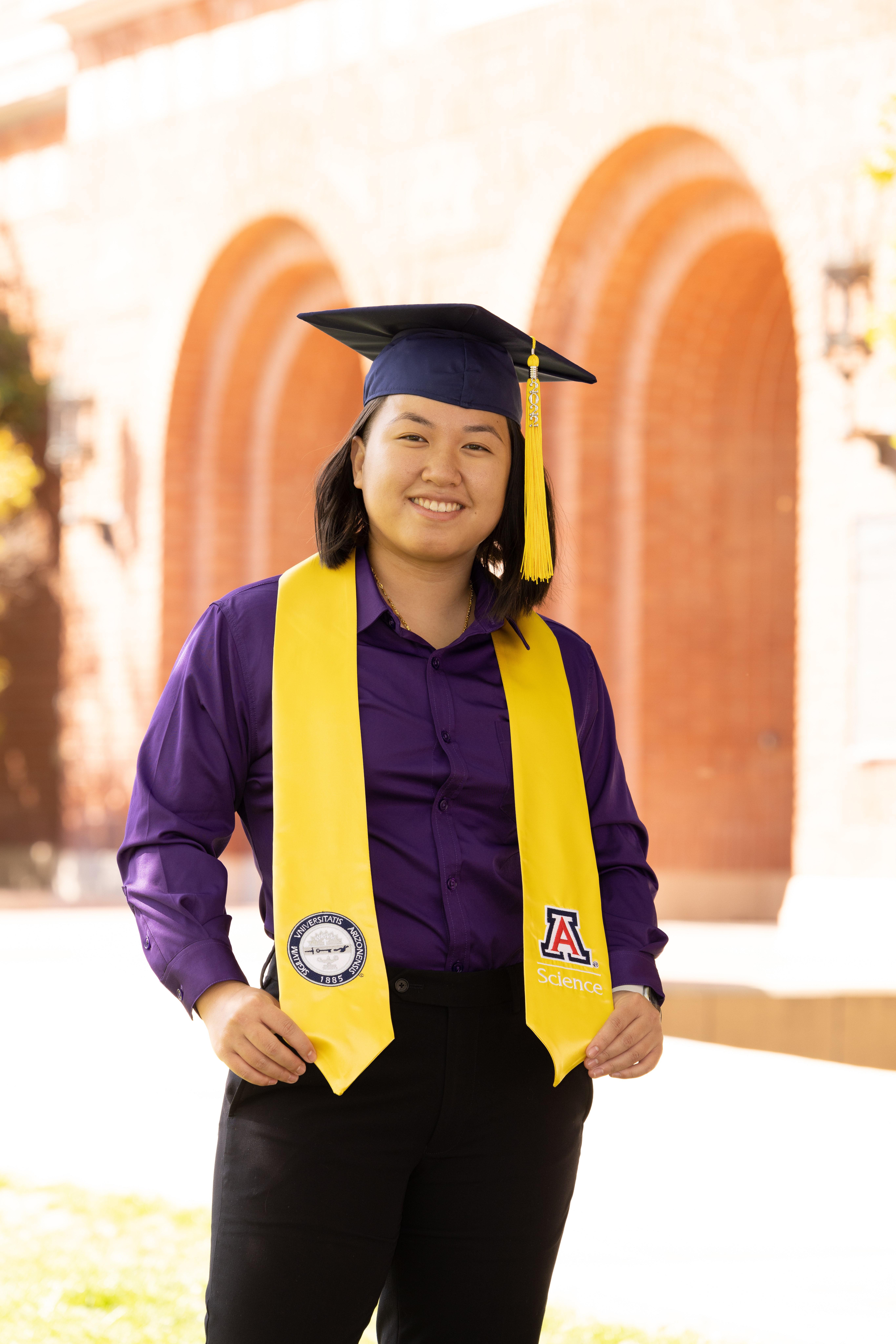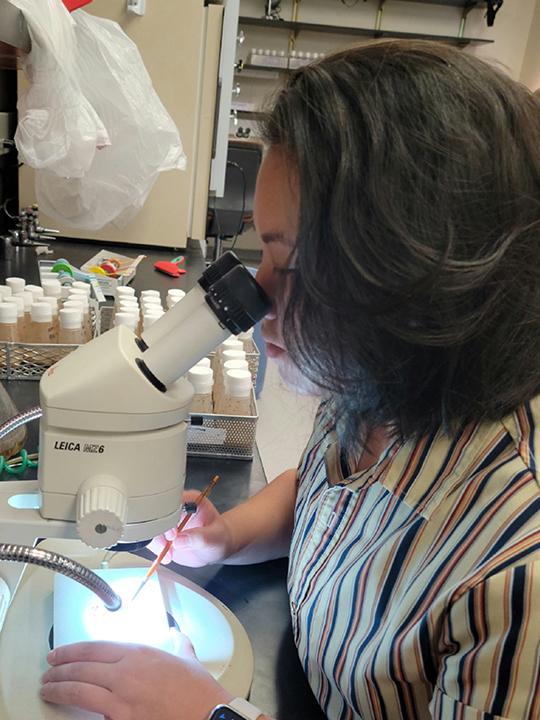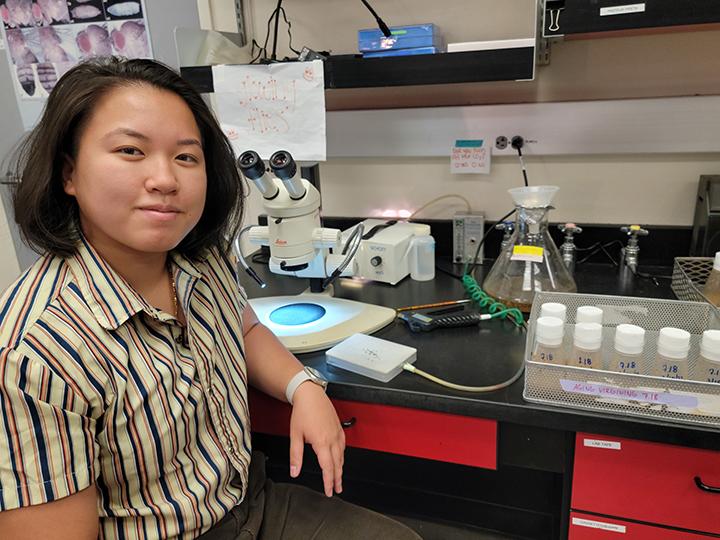My Duyen Tran has been awarded the May 2022 Outstanding Senior Award for the department of Molecular and Cellular Biology. She is also one of the recipients of the Danny Brower Memorial Scholarship. My Duyen started in Dr. Daniela Zarnescu’s lab, which she calls the “fly lab,” as part of the Undergraduate Biology Research Program (UBRP) program after her freshman year. She continued working in the lab throughout her undergraduate career.
The Zarnesu lab works with fruit flies modeling human diseases such amyotrophic lateral sclerosis (ALS), a debilitating neurodegenerative disease that affects the motor neurons. Her project looks at neurodegeneration in a broad sense, thinking about what happens as we age. “I was very curious how things go wrong molecularly,” My Duyen says. “We all go through it, but the aging process is really mysterious. Age is one of the biggest risk factors for neurodegenerative diseases such as frontotemporal dementia (FTD), Alzheimer's disease, and ALS.”
Her group is working on stress granules which are non-membrane bound organelles. “When cells are exposed to stress such as a temperature change or induced starvation, stress granules form. Overtime they will disassemble, and the cell will go back to normal processing. What we’ve noticed is that as the cells age, the stress granules form but they don’t disassemble as well.”
They visualize stress granule formation in the brains of fruit flies using a fluorescent tag that attaches to a protein found in stress granules. They tag on an antibody when they dissect the brains, put the brains on a slide, and it glows green in areas where there are more stress granules.
“We are looking at how the granules change as the flies age, and how they change as we stress them out. Understanding this has implications to how we can possibly improve or slow down aging.”
In this research, My Duyen is also learning about what stress does to the body. “What happens when you are stressed out at an older age point? We would think that it is more detrimental. But why? What are the mechanisms behind that? Intuitively, we can sense that younger flies can deal with stress better, but ‘why?’ is the key question. Why are the younger better able to deal with stress than the older?”
When My Duyen started college, she had a hard time choosing her major. She always loved science, but she was not sure exactly what she wanted to do. When she took an intro biology class with Dr. Ted Weinert, she said that she “absolutely loved it.” She discovered that the Molecular and Cellular Biology (MCB) Department had the research opportunities and support that she needed to pursue her newfound passion.
“All of the MCB classes teach you how to become a scientist - not just a person who knows about science, but a person who does science,” says My Duyen.
In the future, My Duyen plans on going to medical school and becoming a physician. However, she no longer has a strict timeline for that. With the pandemic, she now sees planning for the future as more dynamic and says that she is taking the next steps slow and being adaptable to whatever happens next.
In her spare time, My Duyen enjoys drawing and volunteering. She likes to volunteer at the hospital interacting with the patients, but she also enjoys mentoring other students.
Congratulations, My Duyen, on winning the May 2022 Outstanding Senior Award for the department of Molecular and Cellular Biology as well as the Danny Brower Memorial Scholarship!





